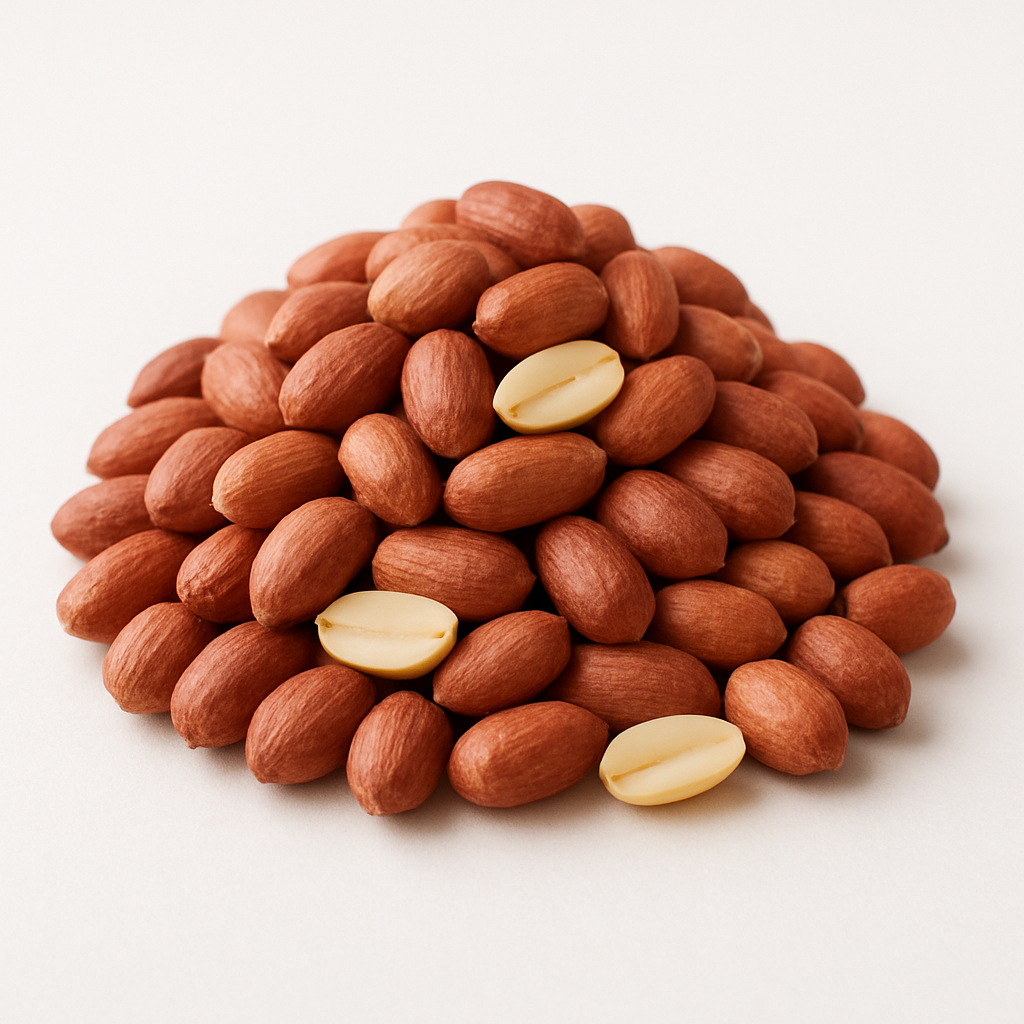Wadi
Peanuts (technically a legume, but commonly referred to as a nut)
Peanuts (technically a legume, but commonly referred to as a nut)
Couldn't load pickup availability
Primary Uses:
1. Culinary uses:
- Peanut butter
- Peanut oil
- Peanut flour
- Peanut sauce
- Roasted peanuts
- Boiled peanuts
- Peanut brittle
- Peanut soup
- Peanut noodles
2. Flavoring uses:
- Peanut extract
- Peanut flavoring
- Peanut seasoning
- Peanut butter flavoring
3. Aroma uses:
- Peanut fragrance oil
- Peanut scented candles
- Peanut air fresheners
Other Uses:
1. Medicinal uses: Peanuts are rich in nutrients such as protein, fiber, and healthy fats, which make them a good addition to a healthy diet. They are also a good source of antioxidants and have been linked to a reduced risk of heart disease, diabetes, and other chronic conditions.
2. Religious uses: Peanuts are used in some religious ceremonies and rituals, particularly in African and Afro-Caribbean traditions. They are often offered as a symbol of fertility, abundance, and prosperity.
3. Ornamental uses: Peanuts can be used as a decorative element in various settings, such as in floral arrangements, wreaths, and centerpieces. They can also be painted or dyed to create colorful and unique decorations.
4. Insect repellent: Peanuts contain a natural insect repellent called resveratrol, which can help keep pests such as mosquitoes and ticks at bay. Some people even use peanut oil as a natural insect repellent.
5. Dyeing agent: The shells of peanuts can be used to create a natural dye that can be used to color fabrics and other materials. The resulting color is typically a range of browns and tans.
6. Folklore uses: Peanuts have been used in various folklore traditions around the world. In some cultures, they are believed to bring good luck and prosperity, while in others they are associated with fertility and abundance.
7. Culinary garnish: Peanuts are a popular ingredient in many cuisines around the world, and are often used as a garnish or topping for dishes such as salads, stir-fries, and desserts. They can also be ground into peanut butter or used to make peanut oil.
Caution:
1. Allergies: Peanuts are one of the most common food allergens, and can cause severe allergic reactions in some people.
2. High in calories: Peanuts are high in calories and fat, which can contribute to weight gain if consumed in excess.
3. Aflatoxin contamination: Peanuts are susceptible to contamination by a toxin called aflatoxin, which can cause liver damage and increase the risk of cancer.
4. Digestive issues: Peanuts can be difficult to digest for some people, leading to bloating, gas, and other digestive issues.
5. Oxalate content: Peanuts are high in oxalates, which can contribute to the formation of kidney stones in some people.
6. High in omega-6 fatty acids: Peanuts are high in omega-6 fatty acids, which can contribute to inflammation if consumed in excess.
7. Processing methods: Many commercially available peanut products are highly processed and may contain added sugars, salt, and other additives that can be detrimental to health.
Share


